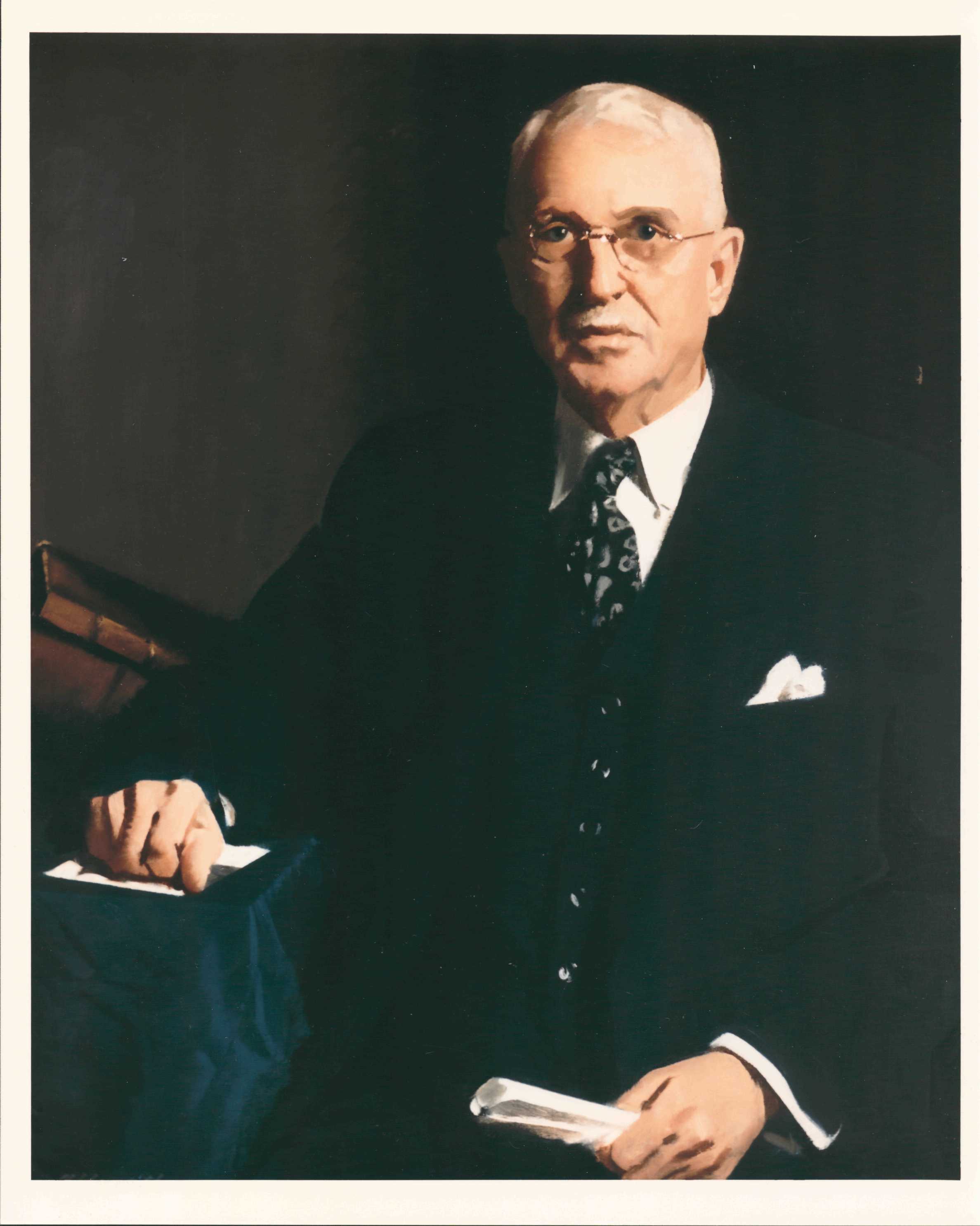 Newell Clark Gilbert was born on December 5, 1880. He received his bachelor’s degree from the University of Wisconsin in 1903, and later received his medical degree from Northwestern University in 1907. Following his internship at St. Luke’s Hospital, Dr. Gilbert began working as a general practitioner in Chicago Heights. In spite of a soon very busy private practice, he began teaching at Northwestern, an activity he continued until the time of his death.
Newell Clark Gilbert was born on December 5, 1880. He received his bachelor’s degree from the University of Wisconsin in 1903, and later received his medical degree from Northwestern University in 1907. Following his internship at St. Luke’s Hospital, Dr. Gilbert began working as a general practitioner in Chicago Heights. In spite of a soon very busy private practice, he began teaching at Northwestern, an activity he continued until the time of his death.
Just a few years after he started practicing medicine, he developed an interest in internal medicine. He devoted a summer to investigative work in the field of cardiovascular disease at Massachusetts General Hospital. Shortly after, he moved to Chicago to devote himself exclusively to internal medicine. While Dr. Clark achieved his greatest fame in the field of cardiovascular disease and became one of the first authorities on disorders of the coronary circulation, he did not want to be known as a cardiologist.
He was appointed to the staff of St. Luke’s Hospital in 1916 and promptly made his presence felt by beginning the expansion of the Social Service and Outpatient Departments, which soon grew to tremendous proportions. Then with the cooperation of the Women’s Board of the Hospital he acquired one of the first electrocardiographs to come to the city, and for years he operated the Electrocardiograph Department almost single-handedly.
Dr. Clark was a founder of what is now known as the Chicago Heart Association. He was one of the organizers of the Central Society for Clinical Research. He was Chairman of the Department of Medicine at Northwestern for more than ten years. He was also Editor in Chief of the Archives of Internal Medicine for eighteen years. He was known as an efficient editor, ruthless in his rejection of long, meaningless articles but ready to give space to an unknown author not supported by the prestige and patronage of a large teaching center, when he recognized a spark of ingenuity or promise in writings.
Beyond these appointments, one of Dr. Clark’s greatest contributions to medicine was his encouragement of young men in medicine. Because of his infectious enthusiasm, strong beliefs and principles, and reputation as an outstanding clinician and clinical investigator, he attracted a large group of young internists, surgeons, physiologists, and laboratory technicians who adopted many of his methodologies.
Updated: March 5, 2020